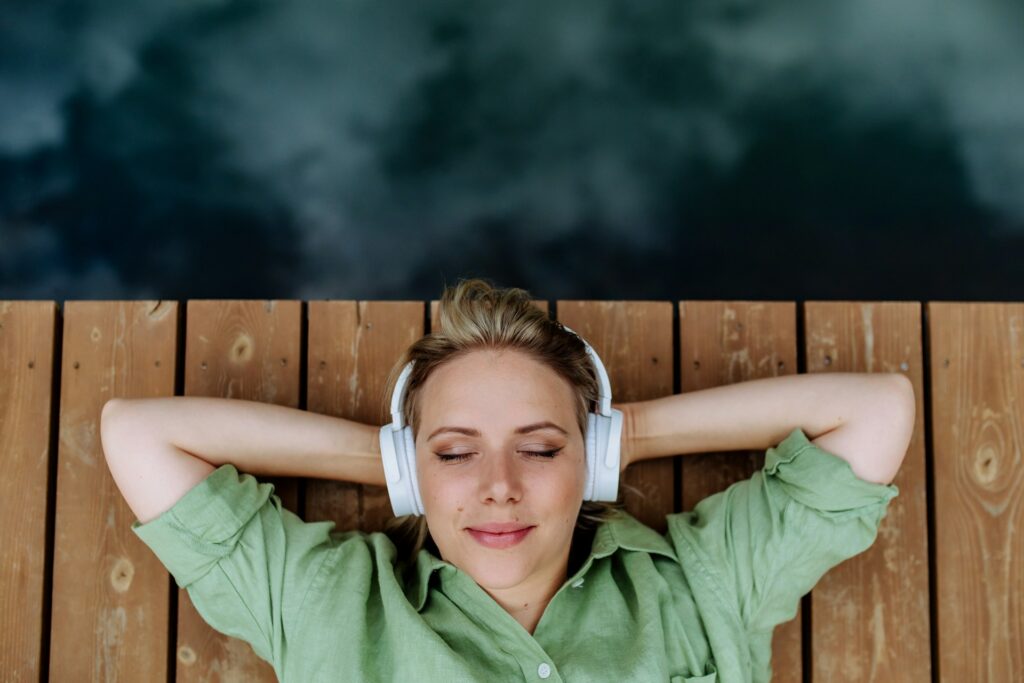Most people chase motivation by trying to push harder—more discipline, more grit, more pressure.

However, what if the missing link isn’t more struggle, but more pleasure? Not the fleeting kind that leaves you drained, but the kind that makes life feel fuller, richer, and worth showing up for. If your drive keeps burning out, it might be time to rethink how pleasure fits into the picture. Here’s why loving your life and the things you do will help you start your days (and get through them) with enthusiasm rather than dread.
1. Enjoyment isn’t a distraction—it’s fuel.

We’re often taught to separate fun from productivity, as if enjoying something automatically makes it less valuable. However, pleasure can make tasks feel lighter, help you stay engaged longer, and build positive emotional momentum. If you actually enjoy the process, you’re far more likely to stick with it. The things that bring joy can be the very things that keep you moving forward, even on tough days.
2. Punishment rarely builds long-term motivation.

Trying to shame or pressure yourself into being better only works for a while. Eventually, it backfires, either through burnout, avoidance, or complete detachment from what you’re doing. Lasting motivation comes from feeling like you’re working with yourself, not against yourself. Pleasure softens the inner battle and creates a rhythm you’re more likely to maintain.
3. You’re more consistent when things feel good.

Most people don’t struggle with starting, they struggle with sustaining. And the things you enjoy, even a little, are much easier to come back to than the things that feel like a chore every time. Pleasure builds emotional resilience. When you associate effort with reward, your brain stops seeing the work as punishment and starts seeing it as something it can actually look forward to.
4. Guilt blocks pleasure, and drains your drive.

When you feel guilty for taking breaks, having fun, or slowing down, you rob yourself of the very energy those things are meant to restore. Guilt keeps you stuck in the loop of “should” and “not enough,” which chips away at your confidence over time. Letting yourself experience guilt-free pleasure creates emotional breathing room. And in that space, motivation often returns naturally, without being forced.
5. Flow happens when effort meets enjoyment.

That sweet spot where you lose track of time and just immerse yourself in something—that’s flow. It doesn’t happen when you’re dreading every second. It happens when there’s just enough challenge and just enough pleasure to keep you engaged. Flow states are one of the most sustainable sources of motivation. They remind you that productivity can feel good, not just draining or dutiful.
6. Motivation thrives in emotionally safe environments.

If your mind associates effort with tension, fear, or judgement, it’ll resist even the best plans. But if you can create a space where trying feels enjoyable, or at least safe, your brain stops bracing and starts opening up. Pleasure helps create that emotional safety. It tells your nervous system, “This is okay. We’re allowed to want this, and we’re not in trouble for trying.”
7. Small pleasures build momentum.

You don’t need a massive reward at the end of every task. Sometimes a good playlist, a favourite drink, or a few minutes of sunlight is enough to make a difference. Tiny pleasures add up. When you string them into your routine, they act like emotional signposts—little reminders that effort and enjoyment can coexist. That makes it easier to keep showing up.
8. You stop chasing external validation when you enjoy the process.

When you’re only focused on outcomes—praise, likes, numbers—motivation becomes fragile. If results slow down, you lose steam. But if you enjoy the process itself, you’re less likely to quit when the external rewards aren’t there. Pleasure makes the work meaningful in its own right. And that’s what helps you stick with something long enough for real growth to happen.
9. Your nervous system needs relief, not just results.

We live in a culture that rewards pushing through, even when you’re exhausted. But long-term effort requires regulation, not just ambition. Your body and brain need moments of ease to stay steady. Pleasure isn’t indulgent in this context; it’s maintenance. It gives your system what it needs to stay resilient under pressure.
10. Burnout often points to a pleasure deficit.

When everything feels heavy, even small tasks become overwhelming. That’s often a sign you’ve been running on duty alone, without anything in your day that genuinely fills you up. Adding a little pleasure—something that lights you up, even for five minutes—can change the whole tone of your day. It won’t fix everything, but it gives your mind a reason to want to keep going.
11. Enjoyment reminds you that you’re alive, not just productive.

When life becomes all about checking boxes, you start to feel disconnected from yourself. Everything turns into a goal, a deadline, or a performance. Pleasure pulls you back into the present. It reconnects you with your senses, your body, and your capacity to feel. That connection is where real, sustainable motivation starts.
12. Creativity is driven by curiosity, not pressure.

When you’re trying to force creativity under pressure, it often dries up. But when you’re allowed to play, explore, and follow what excites you, ideas flow much more easily. That’s the power of pleasure—it invites experimentation instead of perfection. That mindset leads to breakthroughs, not just burnout.
13. You’re allowed to want things to feel good.

We’re so used to associating success with struggle that we sometimes feel guilty when something comes easily or feels enjoyable. However, pleasure isn’t the enemy of progress; it’s often the reason you stay committed in the first place. Letting things feel good doesn’t mean you’re lazy or not taking it seriously. It means you’re building a version of motivation that actually works—one you don’t need to recover from later.


